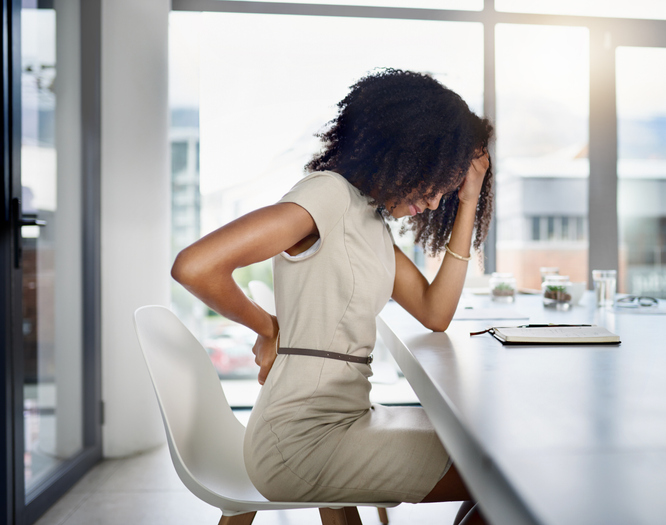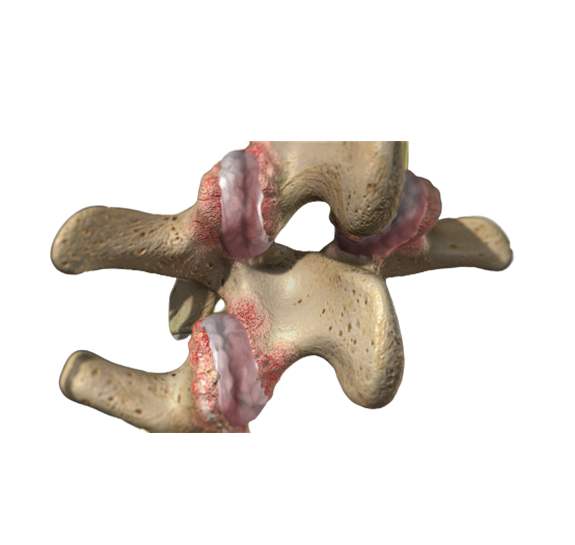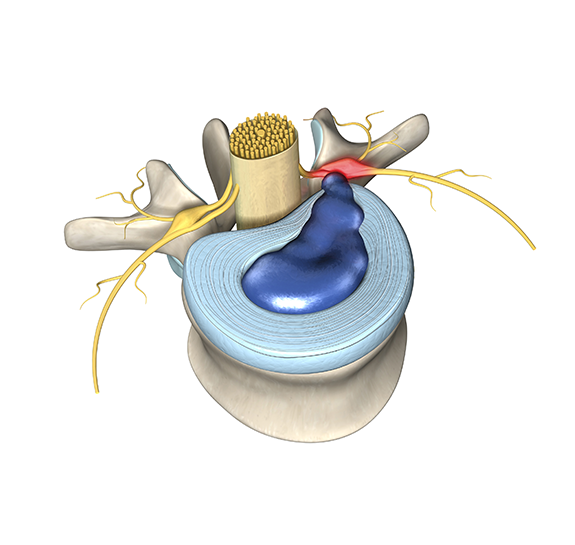
Stress and Back Pain: Cause or Effect?
Stress and Back Pain: Cause or Effect? https://phoenixspineandjoint.com/wp-content/uploads/2017/02/iStock-1055466796.jpg 666 525 Phoenix Spine & Joint Phoenix Spine & Joint https://phoenixspineandjoint.com/wp-content/uploads/2017/02/iStock-1055466796.jpg Back pain and stress can become a painful cycle. Back pain can cause stress and that stress- if not dealt with quickly- can lead to even more back pain. The Center for Disease Control and Prevention of the United States estimates that stress accounts about 75 percent of all doctors visits.
Back pain and stress can become a painful cycle. Back pain can cause stress and that stress- if not dealt with quickly- can lead to even more back pain. The Center for Disease Control and Prevention of the United States estimates that stress accounts about 75 percent of all doctors visits.
Back Pain Causes Stress and Anxiety
Whether your back pain is causing you to miss work or even just impacting your personal life, it isn’t helping to reduce your stress levels. According to a United Nations study, occupational pressures are believed to be responsible for 30 percent of worker back issues, creating a cycle of pain.
The pressure to maintain a normal life while dealing with back pain can seem impossible. As your to-do list gets bigger, it can be hard to keep a positive outlook and often stands as a roadblock to your recovery. It’s important to remind yourself that if you don’t take the time to take care of your pain, it will only derail you later on.
For many Americans, the anxiety from missing work eclipses stressors in almost all other areas of their life. A recent study by the National Institute for Occupational Safety and Health stated that 29 percent of employees are “extremely stressed out” by their job. It’s not uncommon to have to miss at least a few days when back pain strikes. In fact, 150 million workdays are lost each year because of back pain. Total costs attributable to low back pain the US were estimated at $100 billion in 2006, two-thirds of which were indirect costs of lost wages and productivity.
If you are paid hourly, this could mean your paycheck shrinks the longer it takes for you to recover. If you aren’t worried about the money aspect from taking a sick day, you are faced with a pile of work waiting when you return. This increase in your stress levels can make it hard to take the time you need to fully heal your back. According to the National Center for Biomedical Information, “stress can indirectly modulate the repair process by promoting the adoption of health-damaging behaviors.” It all builds upon itself. The stress makes it harder to work, which in turn creates more stress.
Stress and Anxiety Causing Back Pain
Anxiety and stress aren’t often the direct cause of back pain. However, both can cause changes in your natural behavior, which in turn could negatively impact your body.
Our usual work habits change when we are under stress. If you are under pressure at work, you may work longer hours or sit for extended periods of time to complete a project. If you slouch or do not have proper posture when you sit, there will be a prolonged effect on your back. Both of these effects can put additional strain on your back and neck.
Muscle Tension
The natural reaction to stress or anxiety is to either flee or fight. Both of these responses are very physical. In today’s world, running away from a big deadline or stressful situation isn’t always the best plan. This conflict leaves your muscles in a battle between its natural reaction to run far away from the situation or fight off your boss, and staying in the situation to calmly deal with it. This muscle tension is caused by physiological effects of stress, and over time this can cause chronic episodes of back pain, according to Spine Health.
Reduced Physical Activity
One way to relieve stress and anxiety is to take a time out. But if they still don’t go away, your routine shifts to one that incorporates much less activity. Remaining sedentary is the exact opposite of what will actually help both your aching back and your stress levels. According to Spine Health, physical activity produces endorphins that make you feel happy and over time can help you feel more confident in every area of your life. Exercising will also allow you to work through all the tension that may have built up in your muscles during a stressful time. Also, actively doing back exercises and other activities will actually help your back to heal faster, as the New York Times found.
You can put a stop to this cycle by creating a balance between stress and back pain. Learn how to manage your stress. Make sure you are getting enough exercise and take the time you need to heal the first time back pain strikes in order to avoid longer periods of pain. Stretching and becoming more flexible are extremely important to prevent future injury.
For a second opinion on your back or neck pain, contact us for a consultation.
- Post Tags:
- Back Pain
- Stress
- stress and back pain
- Posted In:
- Low Back Pain









